Latest News
Serving as a Lion for Life
Posted by on October 4, 2012 at 1:45 PM EDT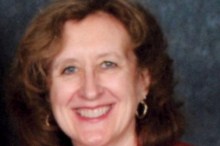 Karla N. Harris is being recognized as a Champion of Change for her work in raising awareness for the visually impaired.
Karla N. Harris is being recognized as a Champion of Change for her work in raising awareness for the visually impaired.
My dad was a Lion and I wanted to give back to the community in a meaningful way. I know of no other organization that can provide the impact that Lions Clubs International does. There are so many needs in our communities, in our country, in our world. As one person, I can serve and make a difference in my community. As a Lion, I join a family of people dedicated to serving. I will never forget the moment I handed the little white cooler of corneal transplant tissue over to the surgical clerk. “Thank you,” she said, “someone will see tonight.” Being a Lion has been the most rewarding volunteering experience I’ve ever had. I will never forget the tears rolling down the face of the 80-year-old man in Mexico when he found that after 15 years, he could finally read again through the recycled glasses I had just placed on his face. Just like I will never forget the man who told me, “You have not just provided me a Leader Dog, you have given me back my job, my freedom, my life.” I will never forget why I am a Lion. I am Lion for life.
Karla N. Harris of South Milwaukee, Wis., has been a member of the South Milwaukee Lions Club since 2002.
Learn more aboutTeaching Life Skills to Youth
Posted by on October 4, 2012 at 1:36 PM EDT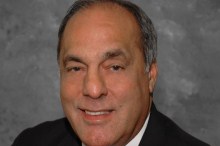 Mike Buscemi is being honored as a Champion of Change because of his long history of work with youth and the development of Lions Quest, a comprehensive life skills program.
Mike Buscemi is being honored as a Champion of Change because of his long history of work with youth and the development of Lions Quest, a comprehensive life skills program.
As a former school teacher, a parent and a proud grandparent, I am convinced that the future of our society, our country and our great Lion organization is dependent on our commitment to building a healthy next generation. This includes preparing young people to live the most productive lives possible and to commit to serving others and “paying it forward” as we do with our Lions clubs. When I was a junior high school teacher, the challenges my students faced became my reality as well. My students needed skills in learning how to resist peer pressure, stay true to themselves and make safe and healthy decisions. These are tools that every child needs, yet we don’t always have a clear process for communicating these skills and life lessons to students. In developing what eventually became the Lions Quest program, we looked at the whole child throughout the schooling process. What Lions around the world offer millions of children through this program are the personal and practical skills to function independently and successfully as an adult, a parent, an employee and a future leader. Being a Lion member sends a clear signal to the world that as members of the community we are unwilling to allow our world’s youth to be neglected or ignored.
Mike Buscemi of Thornville, Ohio, is a member of the Thornville Lions Club and has been a Lion since 1982.
Learn more aboutHelping Special Olympics Athletes See Clearly
Posted by on October 4, 2012 at 1:21 PM EDT Dr. Paul Berman is being honored as a Champion of Change for founding the Special Olympics Lions Clubs International Opening Eyes, an initiative providing vision care for challenged individuals.
Dr. Paul Berman is being honored as a Champion of Change for founding the Special Olympics Lions Clubs International Opening Eyes, an initiative providing vision care for challenged individuals.
As an optometrist, I always want to help people see. I wanted to do something that I could feel good about. Little did I know my efforts would grow into a global health program. Through Special Olympics Lions Clubs International Opening Eyes, providing eye screenings to Special Olympics athletes, and the Lions Lens, a low-cost solution to the need for prescription eyeglasses, Lions are improving the quality of life for people around the world. The Lions support for the program I founded, answering the call of Helen Keller to be the knights of the blind has enabled this progress. Lions have taken a leadership role in eliminating visual impairments for all people, including Special Olympic athletes globally. Helping low-income individuals and people with intellectual disabilities see enables them to contribute more to society and lead happier, more productive lives.
Dr. Paul Berman of Hillsdale, N.J., is a member of the Hackensack Lions Club and has been a Lion for 20 years.
Learn more aboutProviding Vision Services for the Underprivileged
Posted by on October 4, 2012 at 1:02 PM EDT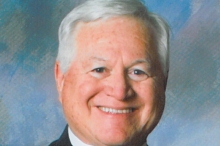 Brad Baker is being honored as a Champion of Change as the CEO of Mid-South Lions Sight and Hearing Service, Inc., an organization that provides comprehensive sight and hearing care to individuals in need.
Brad Baker is being honored as a Champion of Change as the CEO of Mid-South Lions Sight and Hearing Service, Inc., an organization that provides comprehensive sight and hearing care to individuals in need.
I’ve always felt an obligation to serve the community. I wanted to follow in the footsteps of two of my heroes: my dad and mom who were both Lions. Since I became a Lion in 1990, I have worked at Mid-South Lions Sight and Hearing Service. The organization provides me with a unique opportunity to work with Lions from all over the world, and gives me the privilege of seeing how Lions are making a positive difference in the lives of people every day. By providing comprehensive medical care to the unemployed, uninsured and underinsured in our region, the positive impact on hundreds, if not thousands, of lives cannot be measured in dollars. The rewards of watching a grandmother see her grandchild for the first time; hearing stories of people who thought the world had gone gray, but can see colors again; people who forgot there were actually leaves on the trees instead of big blobs of gray-now speak of how the Lions came to their rescue. The most poignant story is of a nurse who had lost her sight and “prayed that God would send an angel to restore me to my family and to my life…but He did not. Instead, He sent the Lions.”
Brad Baker of Jonesboro, Ark., is a member of the Jonesboro University Heights Lions Club and has been a Lion for 22 years.
Learn more aboutCelebrating Hispanic Heritage Month at the Naval Observatory
Posted by on September 27, 2012 at 5:46 PM EDTOn Wednesday evening at the Naval Observatory, Vice President and Dr. Biden hosted their fourth annual reception in celebration of Hispanic Heritage Month, which began on September 15 and continues through October 15. In the past and upcoming weeks, communities across the country will celebrate the histories, cultures, and contributions of Americans with ancestors from Spain, Mexico, the Caribbean, and Central and South America.
We’re proud to serve Vice President Biden and this Administration, which has continued to push to “widen the circle of opportunity for the Hispanic community and keep the American dream within reach for all who seek it,” as President Obama said in his proclamation this year.

Vice President Joe Biden speaks at a Hispanic Heritage Month reception with Dr. Jill Biden and high school senior Ashley Guzman, at the Naval Observatory Residence in Washington, D.C., September 26, 2012. (Official White House Photo by David Lienemann)
Learn more aboutConnecting Communities
Posted by on September 27, 2012 at 4:48 PM EDT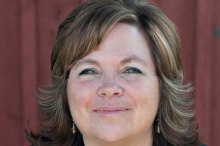 Michele Hovet is being honored as a Champion of Change for her efforts in local innovation.
Michele Hovet is being honored as a Champion of Change for her efforts in local innovation.
I believe working for the government is a calling to work for the greater good, and I’m proud to say that I love my job. Each day gives me an opportunity to do great things that extend beyond my immediate experience. And the power of technology magnifies this work. Technology is a catalyst for innovation. Innovation helps connect our communities. Mobile apps, freely-available data, and open-source technology all play a role. I have been fortunate to work for the City of Arvada, a cutting-edge city in Colorado. Because of the city culture and the leadership of our Mayor, Council and City Manager, we have a high performing organization. We hire the right people to focus on the citizen experience by, as our mission statement says, “Continuing to Build a Great Community.”
Technology has enabled three important projects in Colorado. First, shared services around open source software; second, putting arts back in the class room through tablets and apps; and third, enabling transparency through a shared data repository.
It is important to provide quality services to our citizens. Our open source web content management system (CMS) called Xpress CMS, designed by staff, is cutting edge. It is sharable, flexible, social, transparent, secure, and scalable. Genius is born in the spirit of collaboration. Two minds are better than one, right? Why not utilize governments’ collective wisdom via shared technologies to provide a flexible platform that actually creates efficiencies, reduces red tape and fosters creativity for the greater good. Our goal is to expand the use of XPRESS CMS across the U.S. Get it in the hands of those that need it and those that can enhance it. Boulder, Colorado is Arvada’s first partner, and plans to go live early in 2013 on the Xpress CMS platform. One of the founding Xpress CMS designers, Sean Hudson, is traveling with me to the White House.
But how else can we make a difference with technology? We started by focusing on the kids. The City of Arvada is working with the Arvada Center for the Arts and Humanities to infuse digital, tailor-made, and multi-disciplinary arts into classrooms by using XPRESS CMS with Digital Distance Education Services of Colorado (Digital DESC—pronounced desk). Digital DESC aims to increase access to arts opportunities for students. It promotes partnerships among educators, arts institutions and technology providers. The XPRESS CMS architecture will create a foundation for Digital DESC to deliver an online, standards-based art curriculum to multiple schools while empowering teachers with new technology such as tablets and apps. Our goal is to turn the school’s focus of science, technology, engineering and math (STEM) into STEAM, by including the arts.
We also focus on other shared services in Colorado. We founded OpenColorado as a community asset for all local government data in Colorado. We are helping make government data (like geospatial, crime, and transit data) accessible to the public. The main resource for this effort is the OpenColorado data catalog that allows anyone to index open data and make it searchable. In addition, the technology we use allows governments and community organizations to publish their data on their own website. Thus, creating two access points to the data and unleashing the potential of this community resource. We are hosting, organizing, and partnering with others to educate people on what is possible in the government space and to help anyone realize the new possibility of a government that is simple and easy-to-use. Our flagship event is CityCamp Colorado, which is an “un-conference“ devoted to helping government and community leaders bring about an improved government. In addition, we have partnered with PlaceMatters to organize Code for Communities, a civic hacking event to help create solutions and applications to help peoples live.
With technology and innovative public servants, anything is possible.
Michele Hovet is the Deputy City Manager for the City of Arvada, Colorado
Entrepreneurial Local Governments -- A Catalyst for Collaboration and Innovation
Posted by on September 27, 2012 at 4:04 PM EDT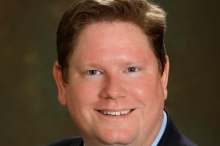 Rob White is being honored as a Champion of Change for his efforts in local innovation.
Rob White is being honored as a Champion of Change for his efforts in local innovation.
Being named a White House Champion of Change is a strong validation for our work to build collaborative relationships between government, academia, and industry. Too often local governments become tied to process over opportunity and limit their ability to innovate or become true agents of change. In my role as an economic developer, I have been given the incredible chance to work across sectors and regions to translate the entrepreneurial ecosystem present in Silicon Valley into a living network of government advocacy, research collaboration, and industry investment.
Starting in 2007, I was given the unique opportunity to work closely with two premier U.S. research institutions Sandia National Labs/CA and Lawrence Livermore National Lab. We focused on creating new partnerships and economic development prospects in Livermore, the eastern-most region of the San Francisco East Bay area. Concurrently, Lawrence Livermore and Sandia/CA were creating plans for the Livermore Valley Open Campus, and we worked to identify numerous community benefits that could be realized by partnering with the Labs in their endeavors.
The most significant outcome from this engagement is the i-GATE Innovation Hub, which was co-founded in 2010 with a colleague at Sandia/CA. Formally recognized by the State of California as an emerging innovation ecosystem, we built coalitions throughout the East Bay and Sacramento regions in order to address a range of issues in developing a strong entrepreneurial climate that would increase new technology startups and commercialization in conjunction with the Labs. These challenges included a lack of entrepreneurial support services, growth capital, innovation networking, and academic interactions. The regionally-focused i-GATE initiative was designed to address these gaps in the research-to-commercialization continuum thus increasing local capacity for technology transfer.
As an example of local government entrepreneurship, I leveraged my small City of Livermore departmental resources to established two 501c3 nonprofits for the i-GATE iHub. The organizations are tasked to support small technology businesses and create an accelerated growth environment to maximize the economic potential of sustainable transportation, clean-energy, and high performance computing technologies. i-GATE programs also include the NEST Commercialization Center, which serves small and emerging technology companies by leveraging technical assistance, expertise, and connectivity with Sandia/CA and Lawrence Livermore user facilities, R&D programs, and technology transfer programs. The NEST is partnered with federal agencies such as the US Commercial Service, Small Business Development Centers, USDA, and MANEX/NIST to increase client access to services without duplicating other programs. After just 15 months of operation, the i-GATE NEST has helped to create over 50 direct and 100 indirect jobs.
Recognizing that the Livermore region was also in need of additional academic opportunities, I helped create the Academic Alliance which brings together academic and research institutions to support the mission of i-GATE, the Labs, the Livermore Valley Open Campus. This Alliance has resulted in development of partnerships with the University of California at Berkeley and Davis, the California State University System, the regional California Community Colleges, and Midwest universities such as University of Oklahoma. These partnerships focus administrative connection and researcher interaction through the i-GATE consortium in order to leverage technology transfer, accelerate commercialization, assist workforce development and training, and increase innovation.
Over the last 30 months, my i-GATE efforts have created a proactive, two-way link between national laboratories and entrepreneurs, industry, innovation networks, venture capital firms, universities, business support services, and economic development resources in order to accelerate the commercialization of innovative energy technologies and grow a cohesive innovation ecosystem.
I am humbled and honored to be selected as a Champion of Change. From this recognition, I hope all local government employees are reminded that the public sector, too, can be entrepreneurial, have a positive impact and contribution to economic and business ecosystems, and can create change that propels our nation’s efforts on the forefront of innovation.
Rob White is the Director of Economic Development for the City of Livermore and the Interim CEO of the i-GATE Innovation Hub, a broad super-regional partnership that is focused on Lawrence Livermore National Laboratory and Sandia National Laboratories/CA as economic engines.
Government as a Connector
Posted by on September 27, 2012 at 3:48 PM EDT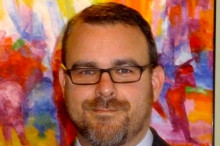 Doug Matthews is being honored as a Champion of Change for his efforts in local innovation.
Doug Matthews is being honored as a Champion of Change for his efforts in local innovation.
I've often joked that I didn't have a choice in entering public service—my father was a local police chief and my mother was an emergency room nurse. My first job was as a life guard, where I also taught swim lessons at the city recreation center. My high school scholarship essays invariably turned to politics, service, and governance in America.
So when it came time for college I did the next logical thing: I studied advertising and public relations. That's right. I abandoned all of my leanings to public service, thinking that the only way for me to exercise my creative side was to abandon that path and pursue something else entirely. I had the same unfortunate images that many do of the "government bureaucrat," destined for a life of mind-numbing rules, regulations, and protocols that would leave the most creative soul a robotic image of oneself by the age of 30.
But something interesting happened along the way. I started my career in public service working as an intern for the Orange County Government, and I discovered a whole group of people that were genuinely working to change the way government worked. Back then, it was the "reinventing government" crowd. Soon, I realized that what I thought would be temporary employment while I found something bigger was actually the very beginnings of the "something bigger" I was meant to work on.
Almost 20 years later, there's something very significant and palpable happening in government today at all levels. And I'm lucky enough to be in a community—Austin, Texas—that is ripe for rethinking government's role in our lives.
At the 2011 Code for America Summit, there was quite a bit of discussion about "government as a platform." I had the opportunity to meet some extraordinary people doing extraordinary things in local government. That included Nigel Jacob and Chris Osgood in Boston, Jeff Friedman in Philadelphia, Jay Nath in San Francisco, and a host of others.
Much of the talk has been about the value of opening up government data, and creating an environment for development of open-source solutions to the challenges of governing. But to me, that's one piece of the puzzle. "Government as a platform" is giving way to "government as a connector." That's where I've found my sweet spot.
A few years ago, Daniel Pink wrote about the right-brain revolution in his book, “A Whole New Mind.” One of the cornerstones of his modern brand of leadership is the "connector" – those who see the connectivity and opportunity between seemingly unrelated ideas. There's a unique place for connectors in government –finding and fostering the nexus where government, entrepreneurs, social service agencies, and the average citizen can connect to make a better world.
In Austin, we're just beginning that journey. In the past two years, we launched one of the largest municipal open source websites in the nation, including a portal for open data, and began our partnership with Code for America. That partnership has created new tools for local wildfire preparedness, started a conversation about improving systems that support animal welfare and began something that might be even more important –a conversation between private citizens, local technology groups, and the City about how we can collaborate to improve the way we serve the public.
Anyone who has heard folks like Jen Pahlka or Todd Park speak knows that there's a new brand of thinking making its way through government at all levels, and I'm just happy to be doing what I can to be part of the movement.
Doug Matthews is the Chief Communications Director of Austin, Texas
- &lsaquo previous
- …
- 99
- 100
- 101
- 102
- 103
- 104
- 105
- 106
- 107
- …
- next &rsaquo


Twitter